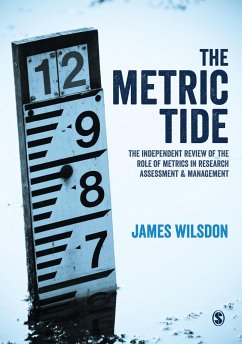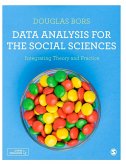Represents the culmination of an 18-month-long project that aims to be the definitive review of this important topic. Accompanied by a scholarly literature review, some new analysis, and a wealth of evidence and insight... the report is a tour de force; a once-in-a-generation opportunity to take stock.
Dr Steven Hill, Head of Policy, HEFCE, LSE Impact of Social Sciences Blog
A must-read if you are interested in having a deeper understanding of research culture, management issues and the range of information we have on this field. It should be disseminated and discussed within institutions, disciplines and other sites of research collaboration.
Dr Meera Sabaratnam, Lecturer in International Relations at the School of Oriental and African Studies, University of London, LSE Impact of Social Sciences Blog
Metrics evoke a mixed reaction from the research community. A commitment to using data and evidence to inform decisions makes many of us sympathetic, even enthusiastic, about the prospect of granular, real-time analysis of our own activities. Yet we only have to look around us at the blunt use of metrics to be reminded of the pitfalls.
Metrics hold real power: they are constitutive of values, identities and livelihoods. How to exercise that power to positive ends is the focus of this book. Using extensive evidence-gathering, analysis and consultation, the authors take a thorough look at potential uses and limitations of research metrics and indicators. They explore the use of metrics across different disciplines, assess their potential contribution to the development of research excellence and impact and consider the changing ways in which universities are using quantitative indicators in their management systems. Finally, they consider the negative or unintended effects of metrics on various aspects of research culture.
Including an updated introduction from James Wilsdon, the book proposes a framework for responsible metrics and makes a series of targeted recommendations to show how responsible metrics can be applied in research management, by funders, and in the next cycle of the Research Excellence Framework.
The metric tide is certainly rising. Unlike King Canute, we have the agency and opportunity and in this book, a serious body of evidence to influence how it washes through higher education and research.
Dr Steven Hill, Head of Policy, HEFCE, LSE Impact of Social Sciences Blog
A must-read if you are interested in having a deeper understanding of research culture, management issues and the range of information we have on this field. It should be disseminated and discussed within institutions, disciplines and other sites of research collaboration.
Dr Meera Sabaratnam, Lecturer in International Relations at the School of Oriental and African Studies, University of London, LSE Impact of Social Sciences Blog
Metrics evoke a mixed reaction from the research community. A commitment to using data and evidence to inform decisions makes many of us sympathetic, even enthusiastic, about the prospect of granular, real-time analysis of our own activities. Yet we only have to look around us at the blunt use of metrics to be reminded of the pitfalls.
Metrics hold real power: they are constitutive of values, identities and livelihoods. How to exercise that power to positive ends is the focus of this book. Using extensive evidence-gathering, analysis and consultation, the authors take a thorough look at potential uses and limitations of research metrics and indicators. They explore the use of metrics across different disciplines, assess their potential contribution to the development of research excellence and impact and consider the changing ways in which universities are using quantitative indicators in their management systems. Finally, they consider the negative or unintended effects of metrics on various aspects of research culture.
Including an updated introduction from James Wilsdon, the book proposes a framework for responsible metrics and makes a series of targeted recommendations to show how responsible metrics can be applied in research management, by funders, and in the next cycle of the Research Excellence Framework.
The metric tide is certainly rising. Unlike King Canute, we have the agency and opportunity and in this book, a serious body of evidence to influence how it washes through higher education and research.
I m genuinely at a loss to describe how good The Metric Tide is. Something that could so easily have been a clunky and breathless paean to the oversold benefits of big data is nuanced, thoughtful and packed with evidence. Read it. Seriously, take it to the beach this summer. It s that good.
David Kernohan
David Kernohan








